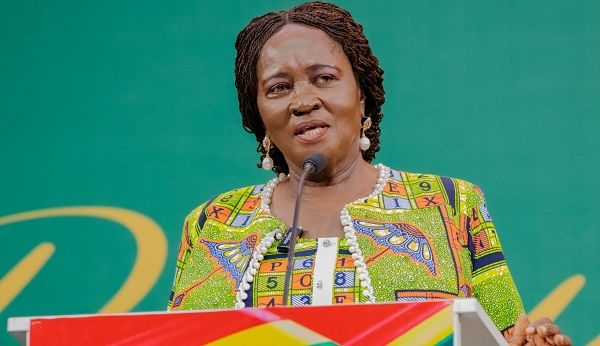Ghana's VP Urges Boost in Intra-African Energy Trade: A Key to Africa's Future

At the prestigious Africa Energy Technology Conference 2025, Ghana's Vice President, Her Excellency Prof. Jane Naana Opoku-Agyemang, passionately advocated for a significant increase in intra-African energy trade. Her address resonated with attendees, highlighting the pivotal role of collaboration and integration in unlocking Africa's vast energy potential and driving sustainable economic growth.
The conference, a leading platform for showcasing the latest advancements in energy technology and fostering partnerships, provided a crucial forum for the Vice President to emphasize the urgency of strengthening energy ties between African nations. Currently, Africa imports a significant portion of its energy needs, a situation she argued is not only economically draining but also hinders the continent's overall development.
“We must move beyond the historical patterns of dependency and actively cultivate a continental energy market,” stated the Vice President. “By sharing resources, expertise, and infrastructure, we can create a more resilient and self-sufficient energy landscape for Africa.” She pointed to the abundance of renewable energy resources across the continent – solar, wind, hydro, and geothermal – as opportunities to be harnessed through collaborative projects.
The Benefits of Intra-African Energy Trade
The Vice President outlined several key benefits of enhanced intra-African energy trade:
- Economic Growth: Reduced reliance on imported energy will free up valuable resources for investment in other sectors.
- Job Creation: Developing local energy projects and infrastructure will generate numerous employment opportunities.
- Energy Security: Diversifying energy sources and reducing dependence on external suppliers will enhance energy security.
- Sustainable Development: Prioritizing renewable energy sources will contribute to a cleaner and more sustainable future.
Challenges and Solutions
The Vice President acknowledged the challenges hindering intra-African energy trade, including inadequate infrastructure, regulatory barriers, and financing constraints. She proposed several solutions:
- Infrastructure Development: Investing in cross-border transmission lines, pipelines, and storage facilities.
- Harmonization of Regulations: Streamlining regulatory frameworks to facilitate trade and investment.
- Innovative Financing Mechanisms: Exploring public-private partnerships and attracting foreign investment.
- Capacity Building: Training and equipping African professionals to manage and operate energy infrastructure.
Her Excellency Prof. Jane Naana Opoku-Agyemang's call for action resonated deeply with the audience. The Africa Energy Technology Conference 2025 served as a powerful catalyst for renewed commitment to building a more integrated and prosperous energy future for the African continent. The emphasis on collaboration, innovation, and sustainable practices signals a significant shift towards a self-reliant and thriving African energy sector – a vital component of the continent's overall economic and social progress.
The message was clear: Africa’s energy future lies in its ability to work together, share resources, and unlock the continent’s immense potential.





